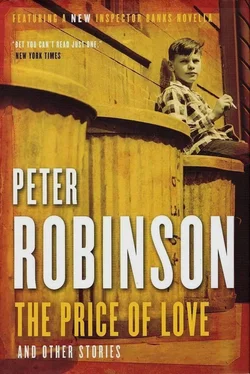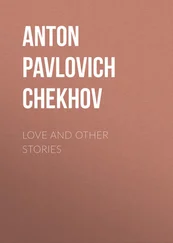Banks liked to think himself a champion of the truth and justice, and it irked him that Norman Stafford’s responsibility for the crimes wouldn’t be made generally known for political reasons. Stafford had been a committee man, Burgess said — planning, developments — and Micallef, among other things, was a property developer, so perhaps that was how they had come into contact? What more natural but that Micallef might offer the man with the power a bit of female company, an escort, dancer or club hostess, for example, perhaps in the way of a bribe? And maybe that was exactly what had happened.
But who was to know of Stafford’s sickness? Banks thought of the images in Stafford’s bedroom, remembered what he had done to the girls — the ritual cleansing, the symbolism of the Sellotape — and he knew that it was because he was a deranged killer, not because he was out to ruin Micallef or had some sort of grudge against him. Stafford might have met Micallef through his committees, might have accepted a sweetener, but in the end it was his own perverse fantasies he had acted out.
But did Micallef know? Had he introduced Stafford to Pamela Morrison himself on the night she died? And the second girl, Maureen Heseltine? Banks doubted it. Micallef would try to distance himself as much from the pimping, once he had turned the girls, as much as he did from owning the knocking shops and flats where some of his girls lived. But had he suspected? Perhaps. The most likely scenario was that Stafford had noticed the girls and let Micallef know he was interested, just as Jackie had said. After that point Micallef would have arranged things without any direct contact. But it still made him guilty as sin in Banks’s eyes. Especially if he had known after Pamela, the first one, and let it happen again.
Banks came out of his reverie and noticed the boy hovering. “Yes?”
“Are you done, sir?”
“What? Oh, yes,” said Banks, stubbing out his cigarette.
“Only it’s past opening time and there are people waiting at the door.”
“Fine,” said Banks. “Better let them in. I’ll be off, then. Thank you for being so obliging.”
“Er... who’s going to pay, sir? For the drinks. Only the other man didn’t leave anything.”
Banks sighed and reached for his wallet.
Banks had told Sandra he would be late home, and she had made some sarcastic comment about that being nothing new. He hadn’t replied because he hadn’t wanted to start another row, but he had left the house in a thoroughly bad mood.
Now it was nearly two in the morning and the taxi was pulling up outside his flat. Banks was a little the worse for wear. Linda hadn’t answered her phone, and the other revelers had disappeared, so he had gone on to a club with Ozzy Albright and Burgess, where they had drunk expensive Scotch and flirted with the scantily clad hostesses. Burgess had picked up the tab, or so Banks believed. That certainly made up for the afternoon.
He took his shoes off and tiptoed into the flat as quietly as he could, but the door creaked, and so did the floorboards. He paused in the hall to listen for anyone stirring but heard only soft snoring sounds from the main bedroom.
He went into the living room and headed for the drinks cabinet. Another Scotch would finish off the evening nicely. Laphroaig, this time. Once he had poured himself a generous measure and the merest splash of water to bring out the flavor, he flipped through his LP collection looking for something suitable. He didn’t feel like jazz or classical, so he dug back into his rock collection. Finally, he picked Nick Drake’s Five Leaves Left, put on his headphones, stumbled briefly over the footstool, then settled down on the sofa to “Time Has Told Me.”
It had been a subdued celebration, Banks thought as he stretched out and lit a cigarette, balancing the ashtray on his chest, perhaps because there would be no public recognition that they had caught their killer. Still, it had been fun. Hatchard had stood a round and even Commander Bickley, normally known as having short arms and deep pockets, had treated the team. Albright had tried to chat up the barmaid, whom everyone except him knew happened to be a bloke. A drunken cop groupie had lifted her T-shirt and shown everyone her tits. One of the DCs had drunk too much too fast and disgraced himself by being sick on the table. Everyone had cheered, then his mate helped him to the toilet to get him cleaned up, ready to resume the celebrations. Someone had tossed a glass of wine in someone else’s face.
All in all, a good time had been had by all before things got hazy at the nightclub. Even then, Banks vaguely remembered, Burgess had been all hail-fellow-well-met and turned out to have a cache of jokes neither Banks nor Albright had ever heard before.
“Time Has Told Me” segued into “River Man” and the next thing Banks knew he could hear the telephone ringing in the distance. He opened his eyes. His Laphroaig was half drunk on the table beside him, Nick Drake had finished ages ago, and his cigarette had gone out in the ashtray on his chest, smoldered down to a length of gray ash. Banks put it on the table beside his drink.
Struggling to his feet, he slipped off the headphones. The phone was ringing. As quickly as he could, he made it over to the stand and picked up the receiver.
“I was just going to hang up, sir,” the voice said. “Sorry for waking you.” It was the night dispatch officer at the station.
“What is it?” Banks mumbled. His tongue felt thick and furry, his mouth full of dead caterpillars.
“They want you down Soho, sir. Alley off Sutton Row, back of the Astoria.”
“I know it,” said Banks. “What is it?”
“Wouldn’t say, sir. Only that it’s urgent. There’s a car on its way.”
Banks had taken four Paracetamol, drunk two glasses of water, brushed his teeth and cleaned himself up as best he could in the ten or fifteen minutes it took the car to arrive. Luckily it was just after dawn and there wasn’t much traffic about. Though he wasn’t a particularly literary type, even in his hungover state he found himself thinking of the poem Wordsworth composed on Westminster Bridge when the car drove over Vauxhall Bridge. He had had to learn it by heart at school and still remembered it, even now. The city really was wearing the beauty of the morning “like a garment,” the soft early light orange and blue on the slow-moving Thames, and the “ships, towers, domes, theatres and temples” catching a ray of sun here or hiding in a mantle of shadow there.
But the effect didn’t last for long. Soon they were heading through Piccadilly Circus, where there was quite a bit more traffic, heading for Shaftesbury Avenue, Cambridge Circus and Charing Cross Road.
Sutton Row was blocked off at both the Soho Square end and at the Astoria theater, so Banks got out and walked down the narrow street. Just to his right, behind the Astoria, was an alley that turned left into a dead end. There, among the dumped rubbish, the overflowing dustbins, empty bottles, cigarette ends, soggy cardboard boxes and the smell of piss, lay a body. Pale faces turned to Banks as he approached, and he recognized Hatchard, tired but still sober; Albright, who lived nearer to the scene than Banks did and was definitely the worse for wear; and a couple of other team members, including the young DC who had been sick in the pub.
“Street cleaner found the body an hour or so ago, sir,” said Albright. “I’m sorry, sir.”
Banks looked down at the crumpled shape then fell to his knees beside it.
Jackie Simmons lay on her back, hands spread out at her sides, legs at crooked angles. She wore a knee-length plaid skirt and a pearl blouse, open at the collar. That was where Banks could see the dark, thick bruising across her throat. Her eyes were open, fixed on the sky but seeing nothing, and her skin was pale, dry and cool to the touch.
Читать дальше












